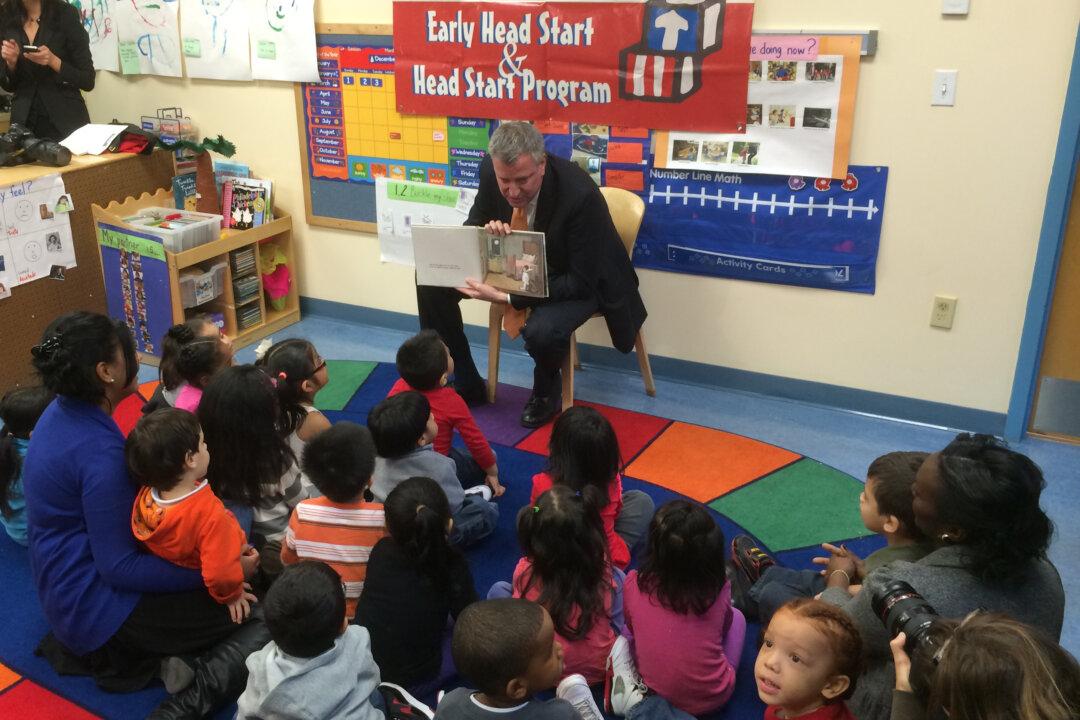NEW YORK—Mayor-elect Bill de Blasio has spent the last 14 months gathering up support for his universal pre-kindergarten plan. Less than a month from taking office, he is putting together a team to work out the fine details of how he will implement the centerpiece of his campaign.
On Tuesday de Blasio announced his pre-k working group, which will recruit and train educators, find space for the 50,000 kids who don’t currently receive full-day pre-k, and identify best practices.
“This is an all-star team,” de Blasio said. “We could not ask for a stronger group to help us prepare and help get the word out about what this means to the children of our city.”
The group will also be charged with continuing to garner support for the plan—as well as the tax hike that goes with it.
To fund universal pre-k, de Blasio proposes a tax hike of less than one percent on those making $500,000 or more. The tax hike will need approval from the State Legislature in Albany, a tricky proposition during an election year, but one de Blasio has said he feels confident he can get.
If de Blasio is successful in getting his tax hike, he will need to find space for the huge influx of kids who will now be eligible for pre-k. The mayor-elect said it will not be possible to ensure every seat is available by the fall of 2014. His goal is to find space so every child has a seat as soon as possible. The task may take several years, according to de Blasio.
He said they will use space in existing schools and unused seats in non-profits to start, and will use capital money to build what they need later.
When asked exactly how many children he would reach by September of 2014, de Blasio did not give a firm answer.
“We know we can reach a substantial amount of children by September 2014,” de Blasio said.
To get one of the new seats, children will not be selected based on financial need.
“We would not build it out according to economic need any more than the rest of our school system,” de Blasio said. “I think it will come down to a very local, geographical and physical dynamic of where can we get the space available and match it to the teachers and get it up and running in a responsible manner.”
***
Members of de Blasio’s Pre-K Working Group
Elba Montalvo, founder and CEO, Committee for Hispanic Children and Families
Josh Wallack, vice president for Early Childhood Programs, Children’s Aid Society
Sherry Cleary, executive director, New York City Early Childhood Professional Development Institute at CUNY
Gail Nayowith, executive director, SCO Family of Services
Nancy Kolben, executive director, Center for Children’s Initiatives





